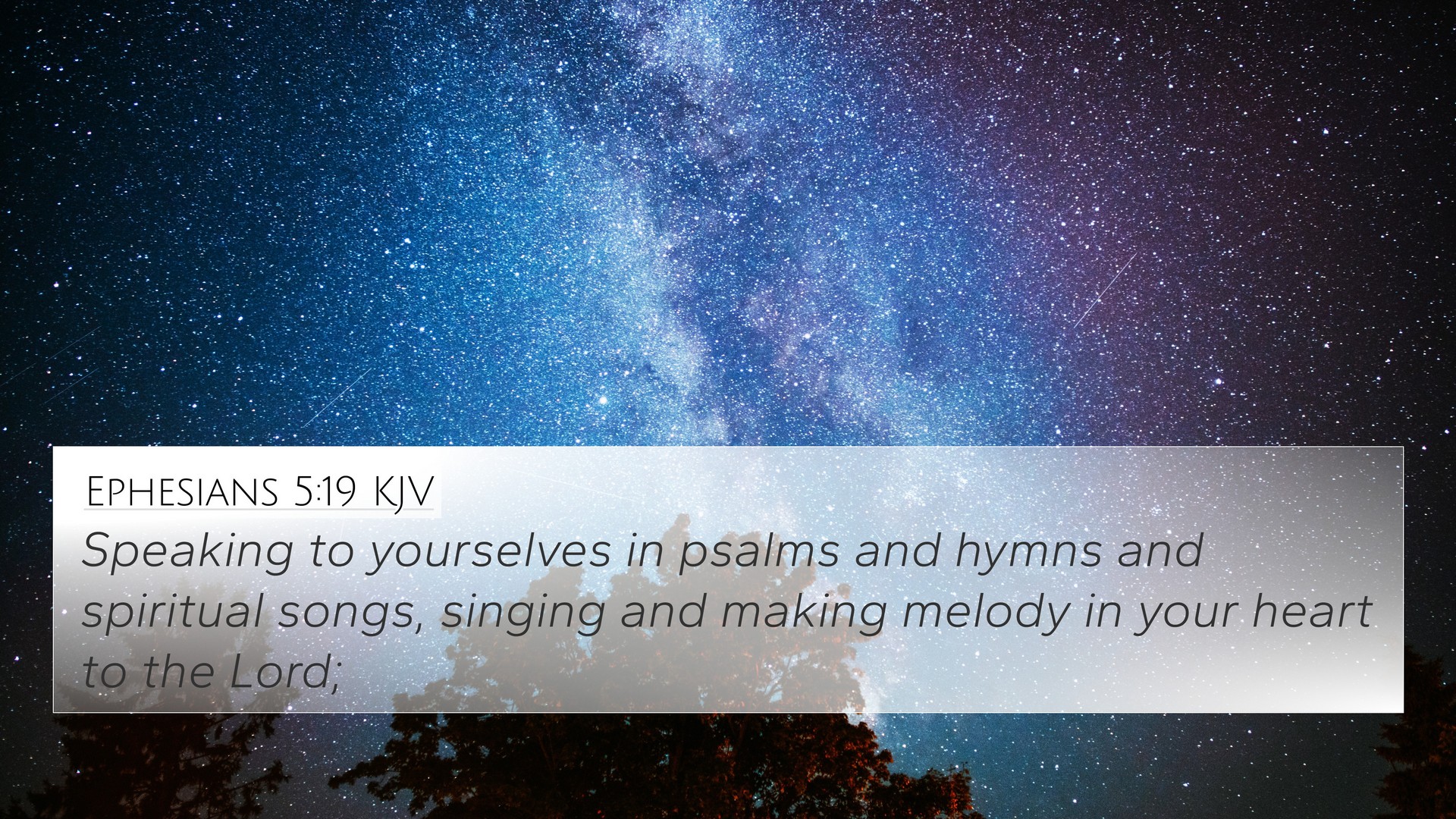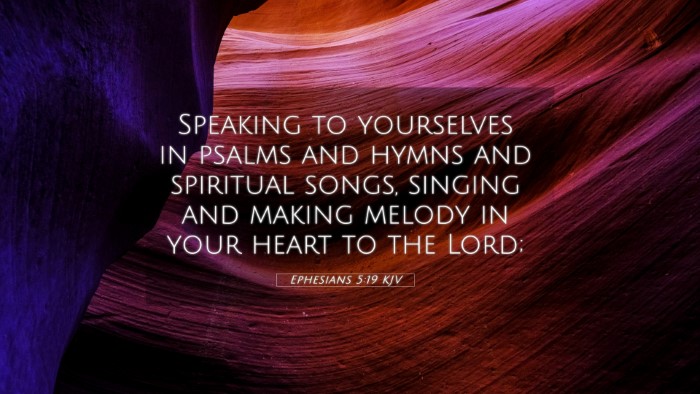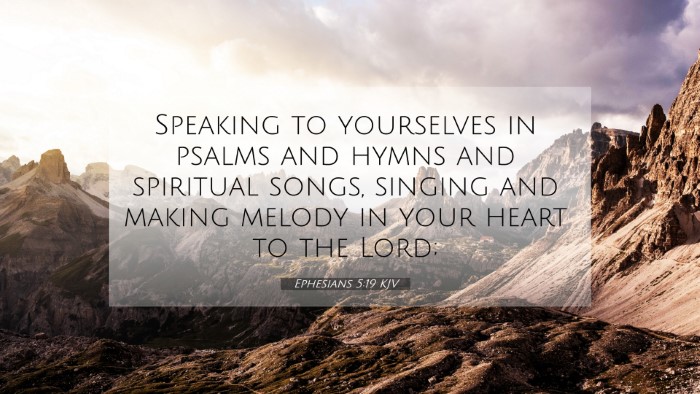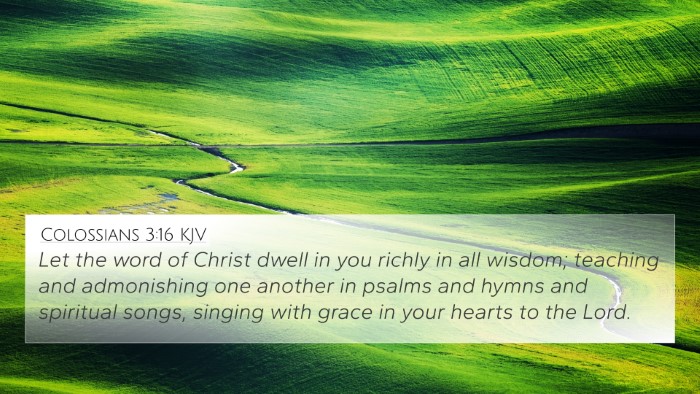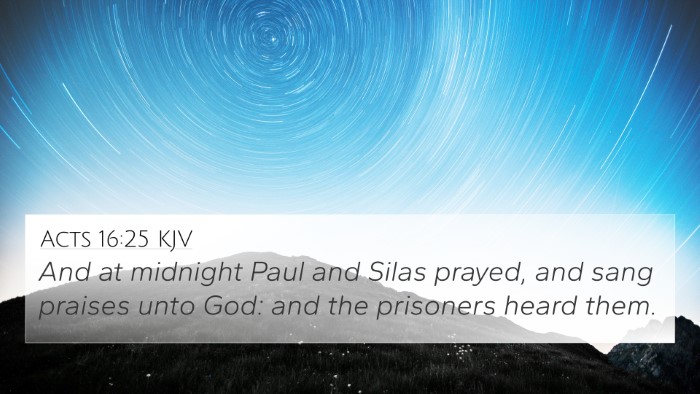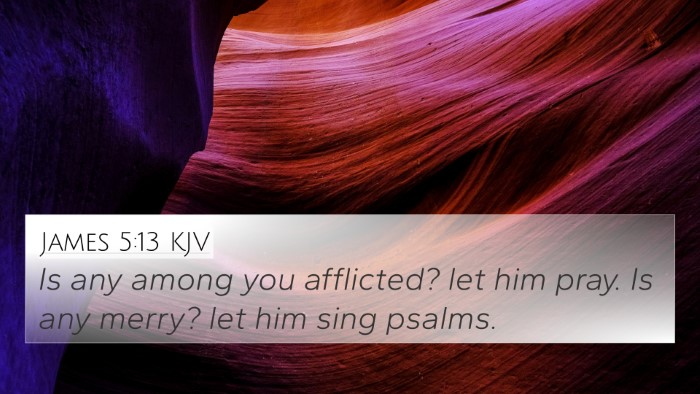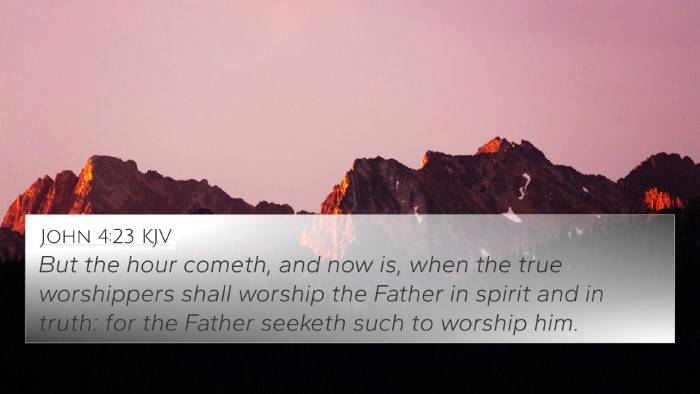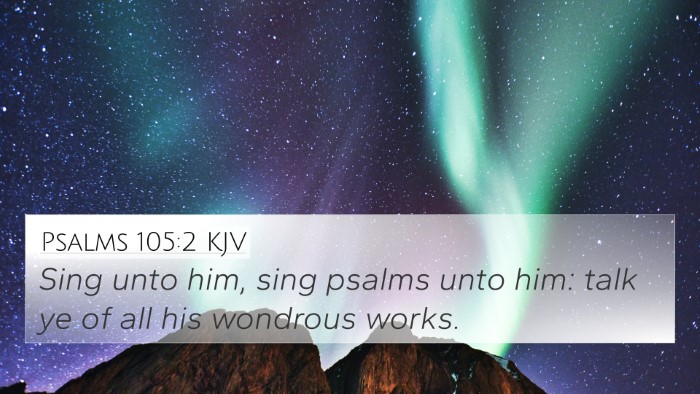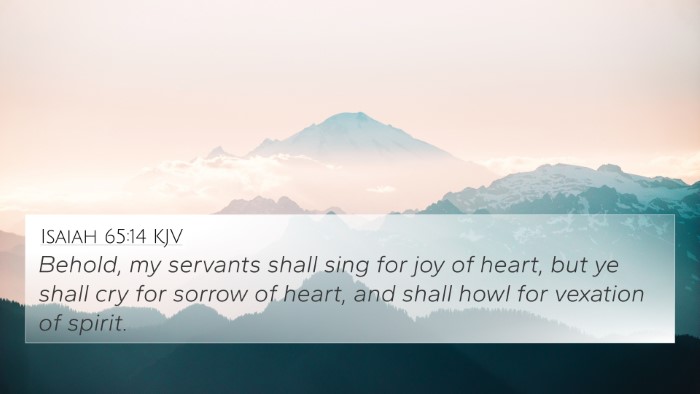Ephesians 5:19 states: "Speaking to yourselves in psalms and hymns and spiritual songs, singing and making melody in your heart to the Lord."
This verse highlights the importance of worship and the expression of joy among believers through music and song. The act of speaking to yourselves emphasizes a communal aspect of worship, encouraging believers to engage with one another spiritually and emotionally.
The following insights from public domain commentaries provide a deeper understanding of this scripture:
-
Matthew Henry: He explains that the expression "speaking to yourselves" indicates an internal dialogue among believers that leads to communal praise and encouragement in their faith. He emphasizes the need for spiritual songs to uplift the heart and build spiritual unity.
-
Albert Barnes: Barnes focuses on the significance of the types of songs mentioned—psalms, hymns, and spiritual songs. He interprets these as varying forms of worship that cater to different aspects of the believer’s relationship with God, enhancing their worship experience.
-
Adam Clarke: Clarke points out the emotional aspect of making melody in one's heart, noting that true worship is not just external but deeply internal. He expresses that this internal joy in worship is essential for a robust spiritual life.
Cross-References to Ephesians 5:19
This verse can be connected to several other scriptures which illuminate its themes:
- Colossians 3:16: "Let the word of Christ dwell in you richly... singing with grace in your hearts to the Lord." This verse parallels the communal and internal aspects of worship.
- Psalm 95:1: "Oh come, let us sing unto the Lord: let us make a joyful noise to the rock of our salvation." This Psalm aligns with the call to worship through song.
- James 5:13: "Is any among you afflicted? let him pray. Is any merry? let him sing psalms." This verse reinforces the connection between joy and song in the Christian life.
- 1 Chronicles 16:23: "Sing unto the Lord, all the earth; shew forth from day to day his salvation." This highlights the importance of continuous worship.
- Psalm 100:1: "Make a joyful noise unto the Lord, all ye lands." This supports the theme of joyous expression through music.
- Isaiah 30:29: "You will have a song as in the night when a holy feast is kept." This reflects spiritual songs tied to joyous celebrations.
- 2 Chronicles 5:13-14: The dedication of the temple involved singing to the Lord and resulted in the presence of God filling the temple, underscoring the power of worship music.
Understanding the Significance of Worship
The essence of Ephesians 5:19 lies not just in the act of singing, but
in the attitude of the heart while worshiping. The scripture teaches that
worship should be both personal and communal, linking believers
through shared expressions of joy. This reflects the broader theme of
unity and spiritual fellowship within the body of Christ.
It is vital for Christians to cultivate worship in their daily lives,
thus strengthening their faith and connection to God. Utilizing tools for
Bible cross-referencing can enhance this understanding, allowing
individuals to explore related themes throughout the Scriptures.
Thematic Connections
When considering the thematic Bible verse connections, one can analyze
the role of music and song throughout the Bible. From
the Israelites singing after their deliverance (Exodus 15:1) to the
angels singing praises (Luke 2:13-14), worship through song is a
profound way to express faith, gratitude, and joy in the Lord.
Believers are encouraged to embrace a lifestyle of worship, enriching
their spiritual journey by actively participating in singing and spiritual
songs, thus making melody in their hearts, just as Ephesians 5:19 instructs.
Conclusion
Ephesians 5:19 serves as a reminder of the significance of worship in
the Christian faith. By cross-referencing this verse with others,
believers can gain a deeper understanding of how worship through
music fosters both personal joy and communal unity in faith.
Engaging with Scripture through song enables Christians to connect
with God and with each other in profound ways, reflecting the joy
of their salvation together.
